13 common dishwasher mistakes we’re probably all making, according to experts
Experts warn how these dishwasher mistakes could harm the longevity and effectiveness of your appliance, and risk damaging the items you put inside it
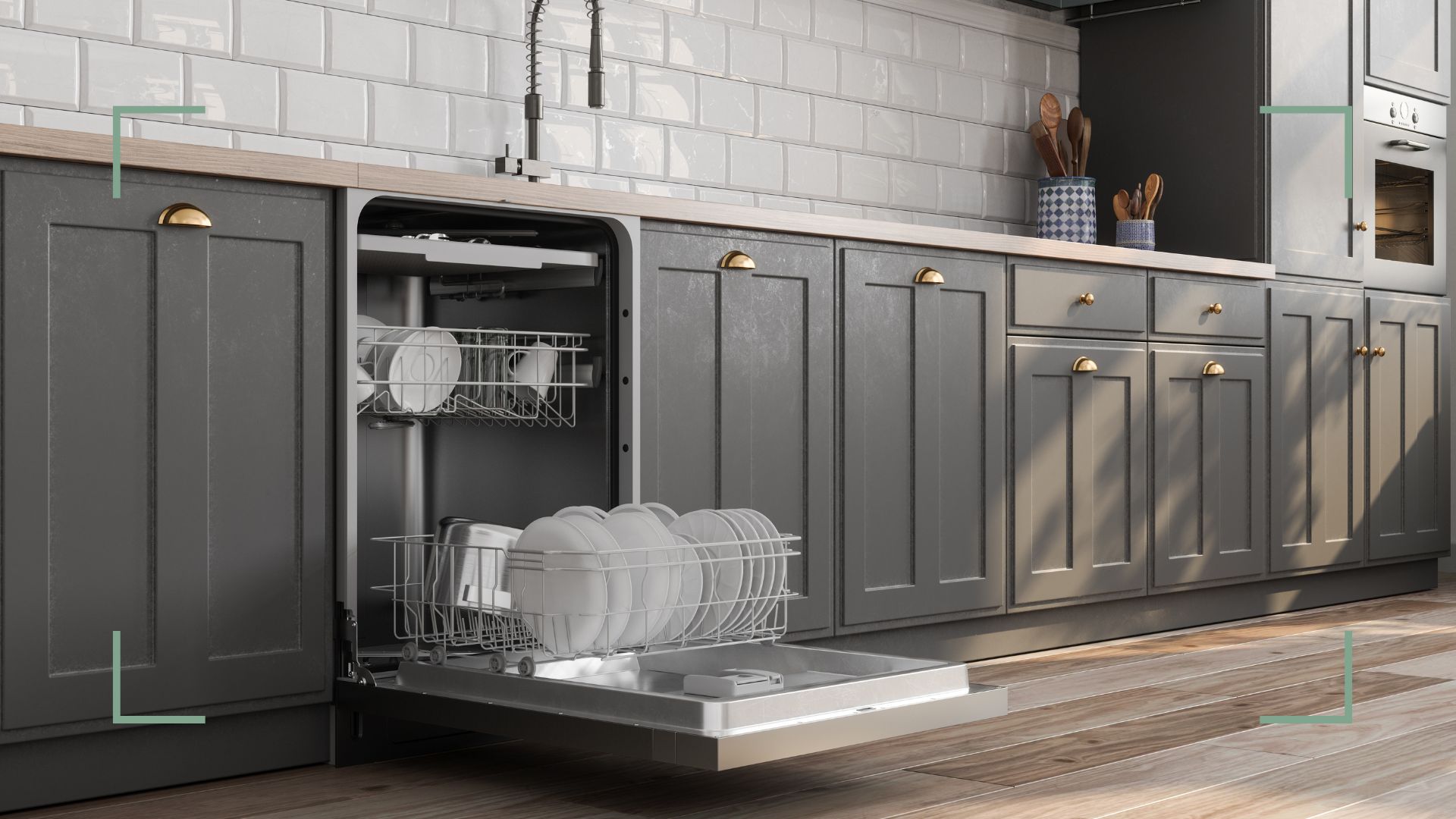
A dishwasher is one of the most useful kitchen appliances there is, saving both time and effort when it comes to the ever-so-slightly dull task of washing up. But in order to keep yours running as it should, it’s important to avoid some of the most common dishwasher mistakes households make on a daily basis.
Though using a dishwasher as part of your kitchen cleaning routine is pretty simple, it’s also easy to run into errors whilst using one. And that's especially true given that you may not even realize you're doing anything wrong. However, there are plenty of behaviors – be it overloading your dishwasher, or putting the wrong items in there – which could be causing trouble.
And while these mistakes – like some bathroom design mistakes, or living room design mistakes – might feel inconsequential in the short term, in the long term, they could be harming your dishwasher, and impacting how effective it is in actually cleaning your kitchen items.
13 common dishwasher mistakes - and how to avoid them
We explore some of the most common dishwasher mistakes people make, and why is it so important that we avoid them. To help you make the most out of your machine, we consulted appliance experts and cleaning professionals, for the need-to-know on treating your dishwasher right.
1. Overloading the compartments
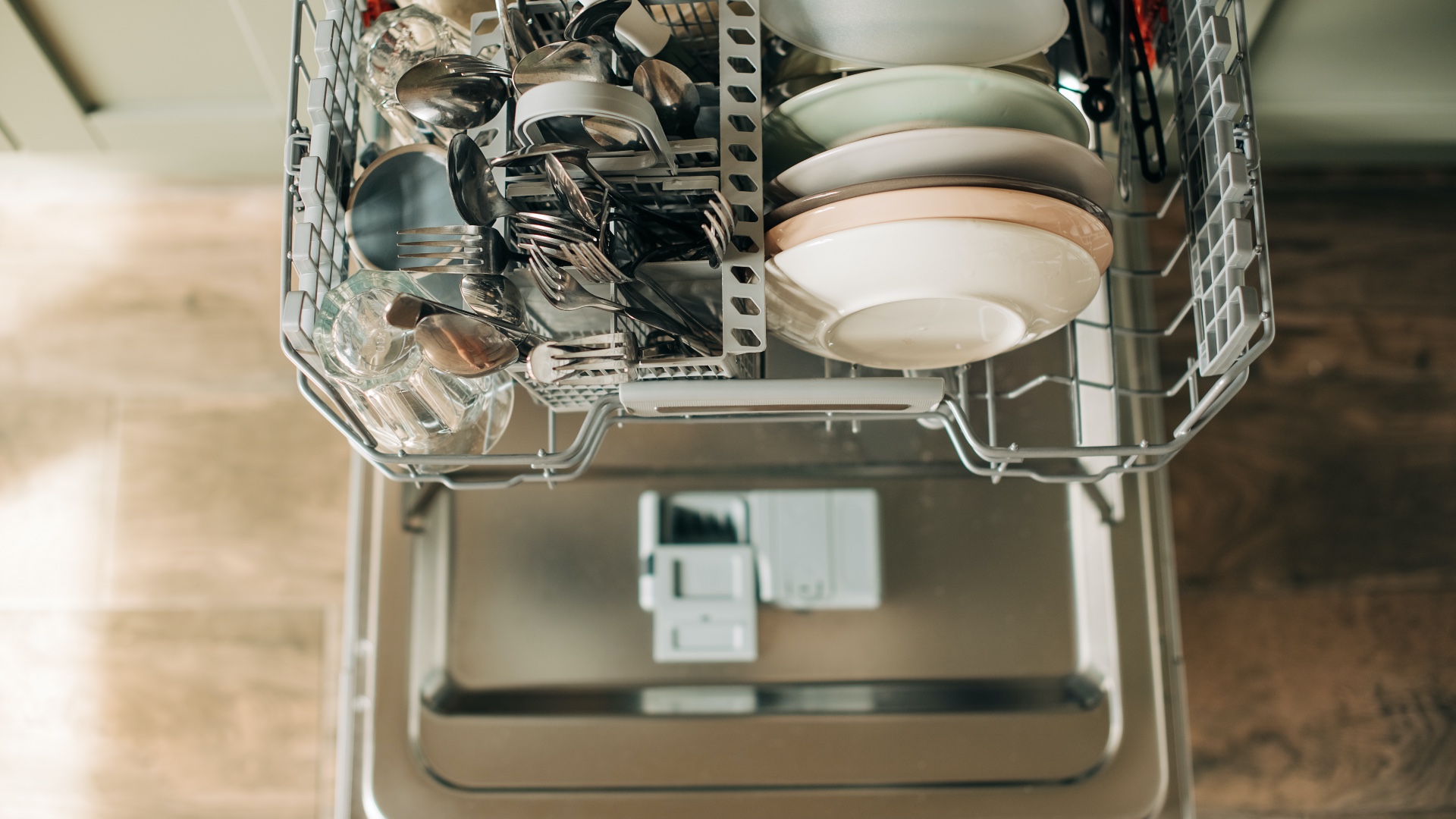
This likely won’t come as a surprise, but one of the most common mistakes we make when using our dishwashers is to overfill them with dishes, pans, glasses, and cutlery.
Why is this such an issue? Stuffing your dishwasher to the brim means it won’t clean as effectively as it would if you were to leave more space between items. Angela Lee, a cleaning expert at Hellamaid explained that "overloading your dishwasher can result in unhygienic dishes and unpleasant odors.
"To avoid this, load your dishwasher properly - and 'properly' means leaving enough space between the dishes so that the water and soap can properly circulate during the cleaning cycle."
Sign up to our free daily email for the latest royal and entertainment news, interesting opinion, expert advice on styling and beauty trends, and no-nonsense guides to the health and wellness questions you want answered.
2. Not 'cleaning' dishes beforehand
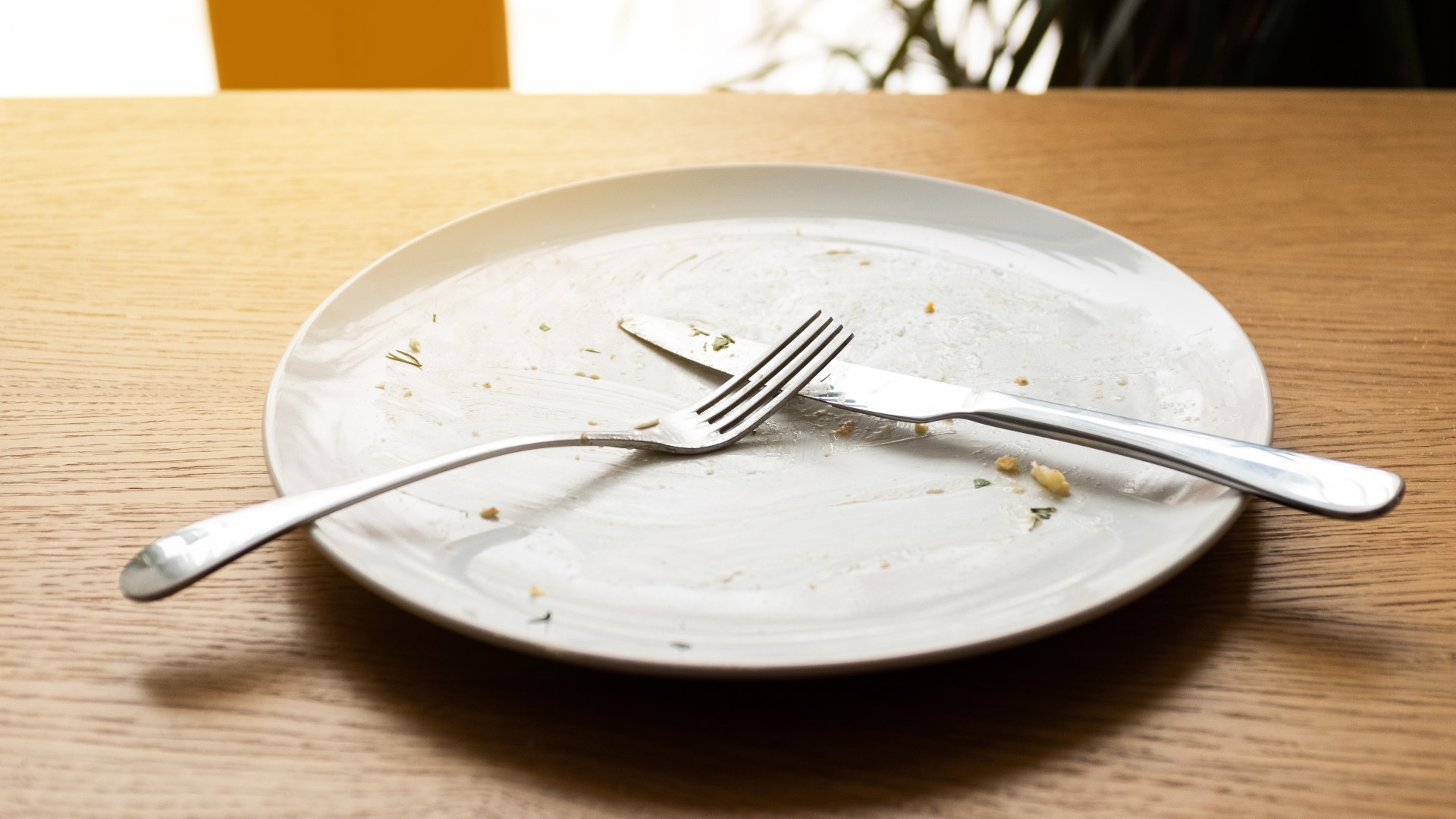
This is a controversial point, with some experts stating that you needn’t do any cleaning of your dishes prior to placing them in the dishwasher.
However, it's important to remember that your dishwasher isn’t a trash can, or a garbage disposal – so not scraping bigger bits of stuck-on food or sauce off of them is one of the biggest mistakes you can make when using the appliance, as these leftovers could linger.
"While dishwashers are designed to clean dishes, it is still best to scrape and rinse dishes before loading them into your dishwasher," advises Angela. "Not doing this will only clog your dishwasher eventually (with bits of food), and you'll end up with unclean dishes." Which will ultimately result in you having to clean your dishwasher more frequently.
Christopher Doscher, director of communications at the Association of Home Appliance Manufacturers says that while pre-rinsing is unnecessary and "can waste a lot of water," it's definitely helpful to scrape away any stuck-on excess beforehand.
3. Placing items facing upwards
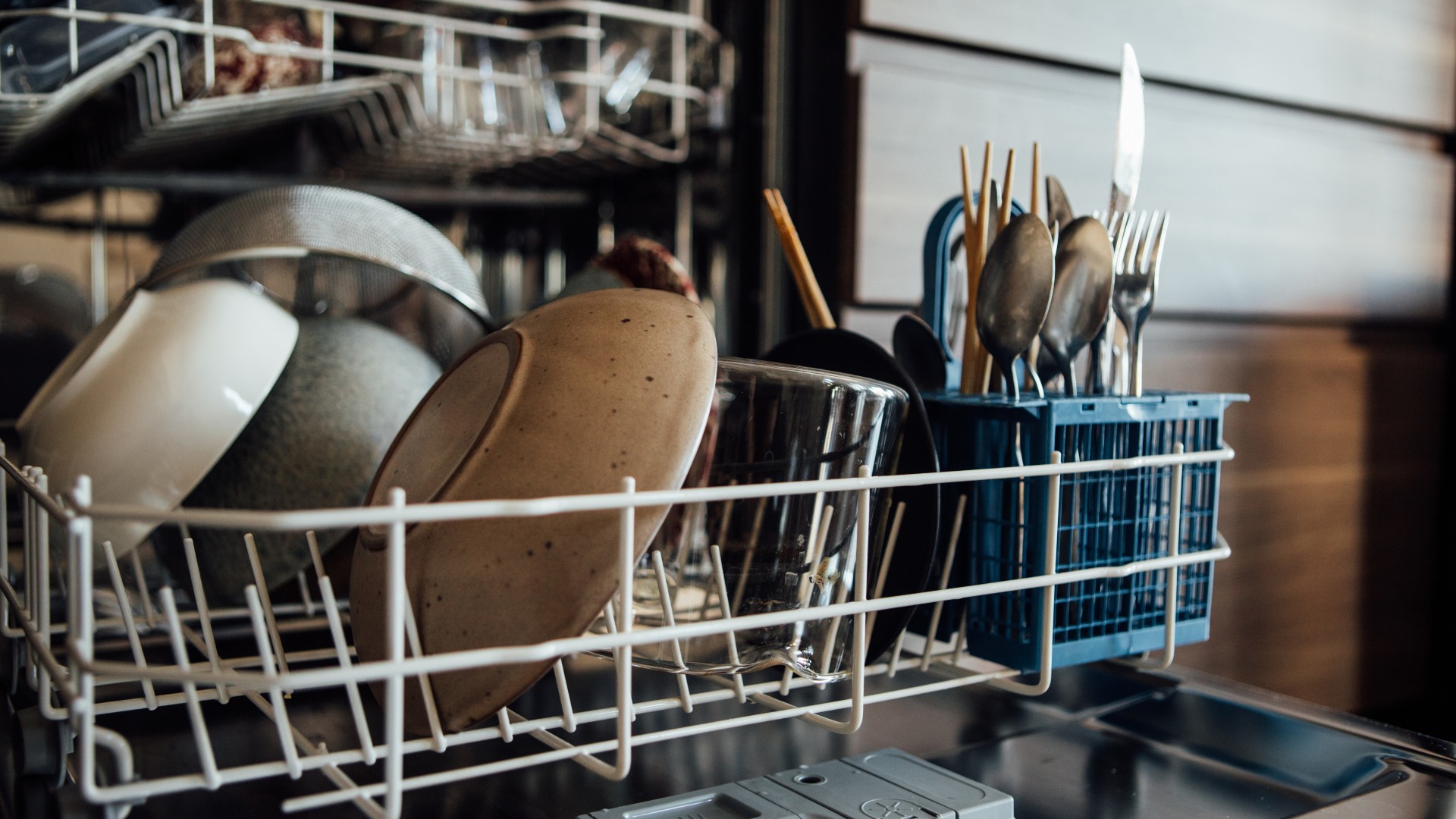
If we're honest, many of us have a tendency to simply shove our items in the dishwasher in any way they'll fit. And in this kitchen-based game of Jenga, plates, bowls, cups, and mugs can often end up right side up (e.g. facing up, rather than down).
And while this won’t be damaging to your appliance, placing items facing upward will likely affect how well your dishwasher cleans them.
If you’re unsure about how to position items, Christopher Doscher advises, “Put pots and pans face-down on the bottom rack, so they’re closer to the force of the spray. Bowls can be put on the top or bottom rack, but they should be positioned downwards so that the spray hits the inside.”
"For best results, place bowls, cups, glasses, and saucepans with soiled surfaces toward the center," suggest Daria Saxton appliance specialist at Sharp."In fact, tilt dishes slightly for better drainage."
4. Only cleaning the obvious parts
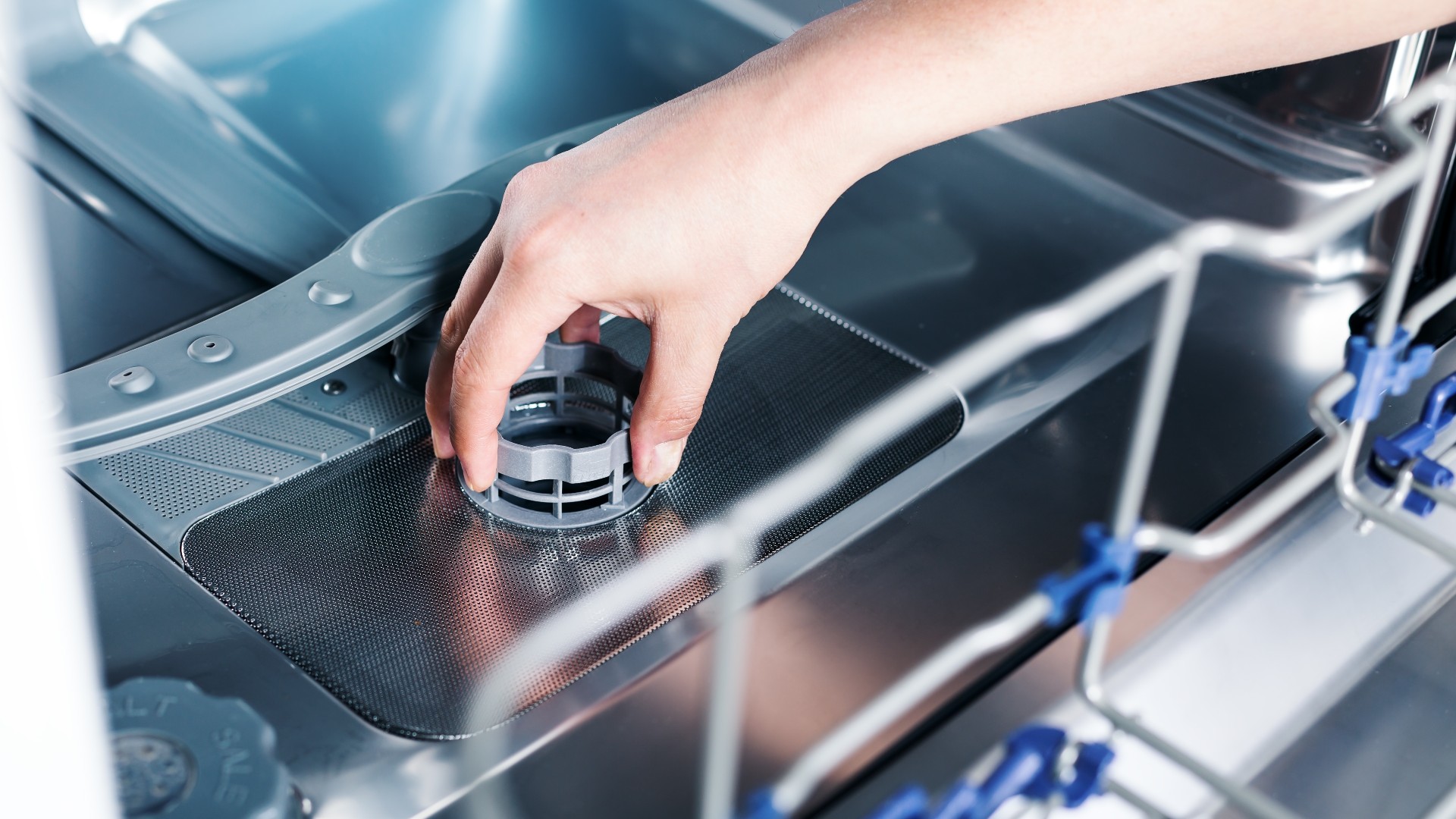
Cleaning your dishwasher, like cleaning a fridge or cleaning a washing machine, is an essential home maintenance task, but you're making an error if you find yourself cleaning only the bits that you can see, such as the inside of the door.
"Few people know this, but most of what cleaning a dishwasher entails is actually replacing or cleaning the filters, and the moving parts like the circular sprayer arms," Stefan Bucur, cleaning expert and founder of Rhythm of the Home, explained.
“Since the cabin of the dishwasher and the racks are constantly exposed to the washing process itself, those parts generally don't need as much attention if any at all. So the common mistake people make here is that they concentrate on cleaning the exposed parts too much while ignoring the ones that actually matter," he said.
In order to clean these parts properly, Stefan suggests taking them out entirely (they should be removable) and cleaning them with water and dish soap.
5. Placing cutlery right-side-up
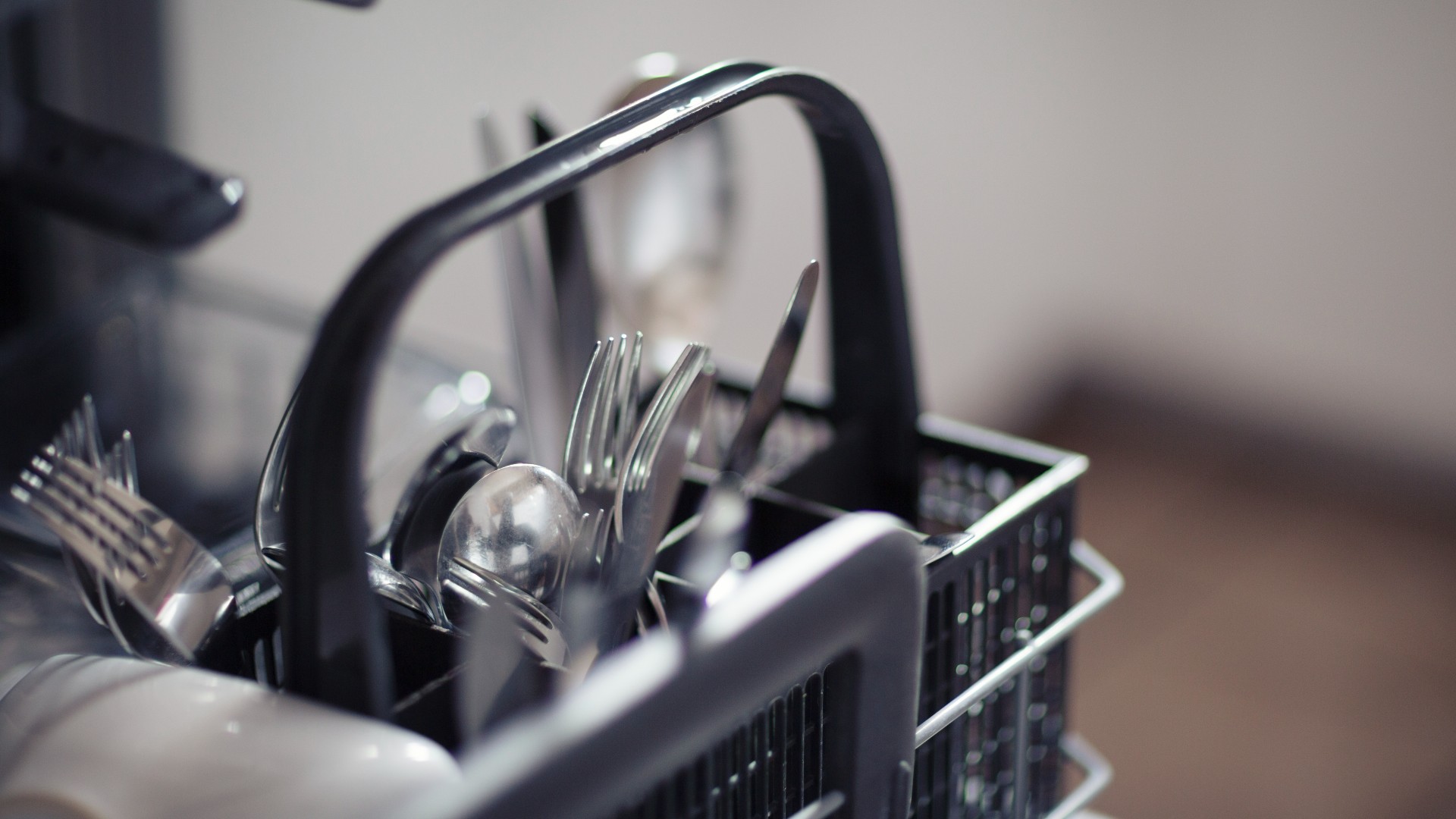
This is another dishwasher practice that is hotly debated, but Daria suggests that households shouldn't be placing cutlery business-end up when loading the dishwasher – e.g. placing the sharp part of the knife/fork up, facing the top of the dishwasher.
"How you sort your silverware is a personal preference, but we suggest loading the silverware handles up instead," says Daria. Why is this advised? "This way, you’re lowering the chance of accidentally jabbing yourself with a utensil and will also reduce the number of times you touch the eating part of the fork/knife or spoon, making it more hygienic, too."
Not only that but by placing the pointed end down, you're also ensuring that the dirtier end of your cutlery is closer to the jets of water, giving your dishwasher a better chance of dislodging food.
6. Using the wrong detergent – or using too much of it
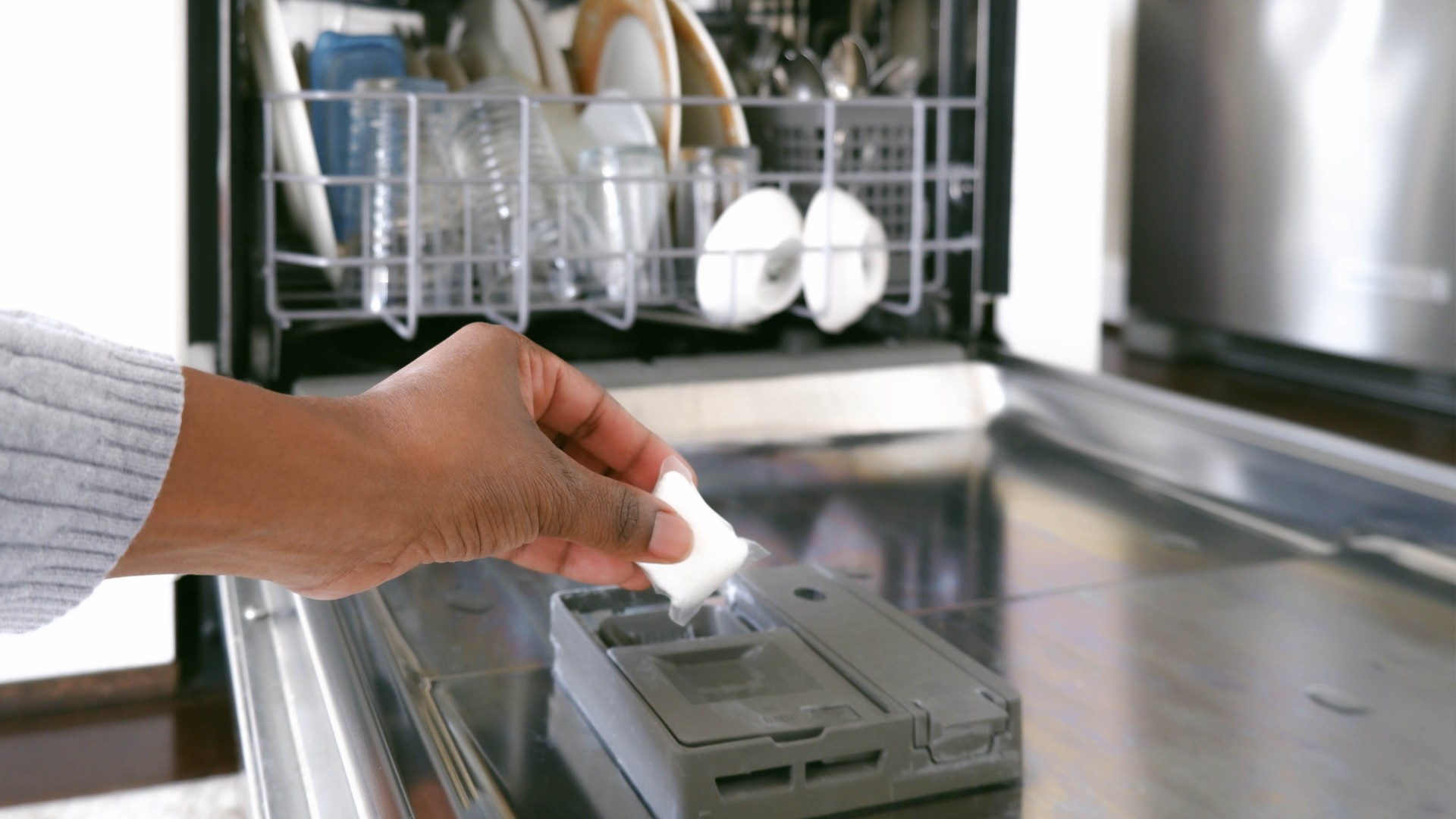
Largely, experts advise that using too much detergent/soap, or the wrong kind of detergent for a dishwasher (e.g. one that wasn’t specifically designed for that appliance), is one of the biggest dishwasher mistakes.
Appliance technician Jason Carter explained to w&h that using the wrong type of detergent can create excess soap suds - something which can actually damage the appliance if left unresolved.
"Many customers have called me to fix their dishwashers, only to find out that using the wrong detergent was the cause of their issues," he said. “I recall one instance where I had to replace a dishwasher's pump because the homeowner used regular dish soap, causing excessive suds and eventual damage to the appliance."
Not only that, but Angela revealed that using too much detergent can also impact how effective your dishwasher is at returning your dishes and glasses to glistening condition.
“If you put too much soap in your dishwasher, it can lead to a buildup of soap residue, which can make items look cloudy or leave spots."
7. Not opening the door immediately after washes
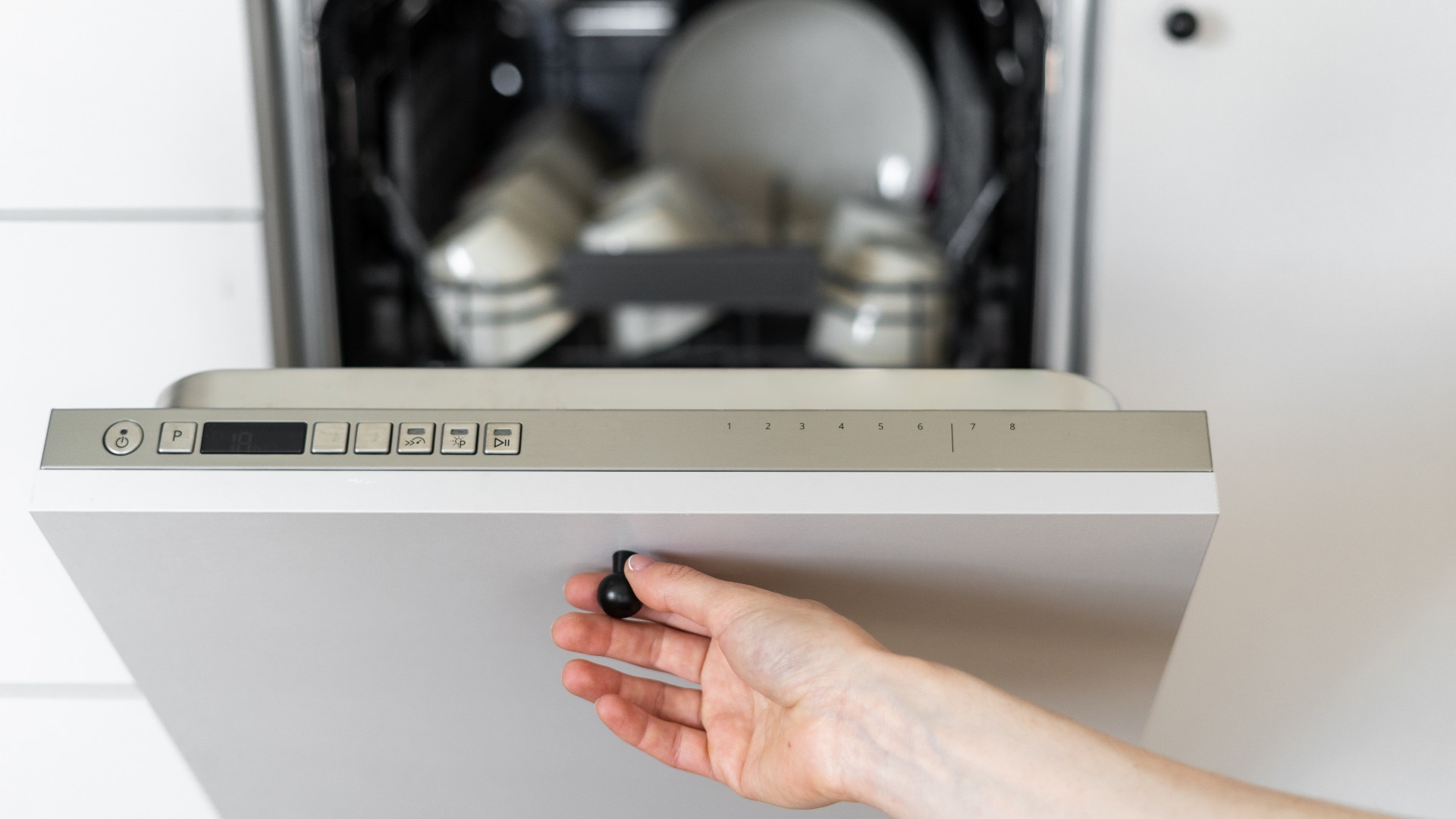
Michael Forbes, a product specialist at AEG, revealed that many of us are guilty of leaving our dishwashers closed long after a wash has finished, only coming back to them when we’re ready to unload the items.
However, he warned against this, explaining that leaving the door closed after a wash will likely lead to a build-up of excess moisture.
"Before a wash takes place, it’s fine to keep the door closed to stop any odors escaping," he said. "But after a wash, it’s best to leave the door open for the appliance to air out and fully dry. This will prevent any mold build-up." Plus, it’ll help your items to dry faster too!
8. Failing to read the instruction manual before use

Problems often arise when we assume that one dishwasher is exactly like the next - so one mistake you're going to want to avoid is assuming that you don’t need to read the instruction manual for your specific model.
Ron Shimek, president at Mr. Appliance, explained that each dishwasher model has slightly different requirements and ways of operating.
One example is the sort of items each appliance is equipped to deal with. Ron told us, "The biggest and most common mistake that people can make while using their dishwashers is to not read the owner’s manual before using the appliance."
"For example, it is vital to read the manual prior to putting what you might consider to be non-dishwasher-safe items, in the machine. If the manufacturer does not say the item is dishwasher safe, don’t put it in!"
9. Putting delicate and/or wooden items in to wash
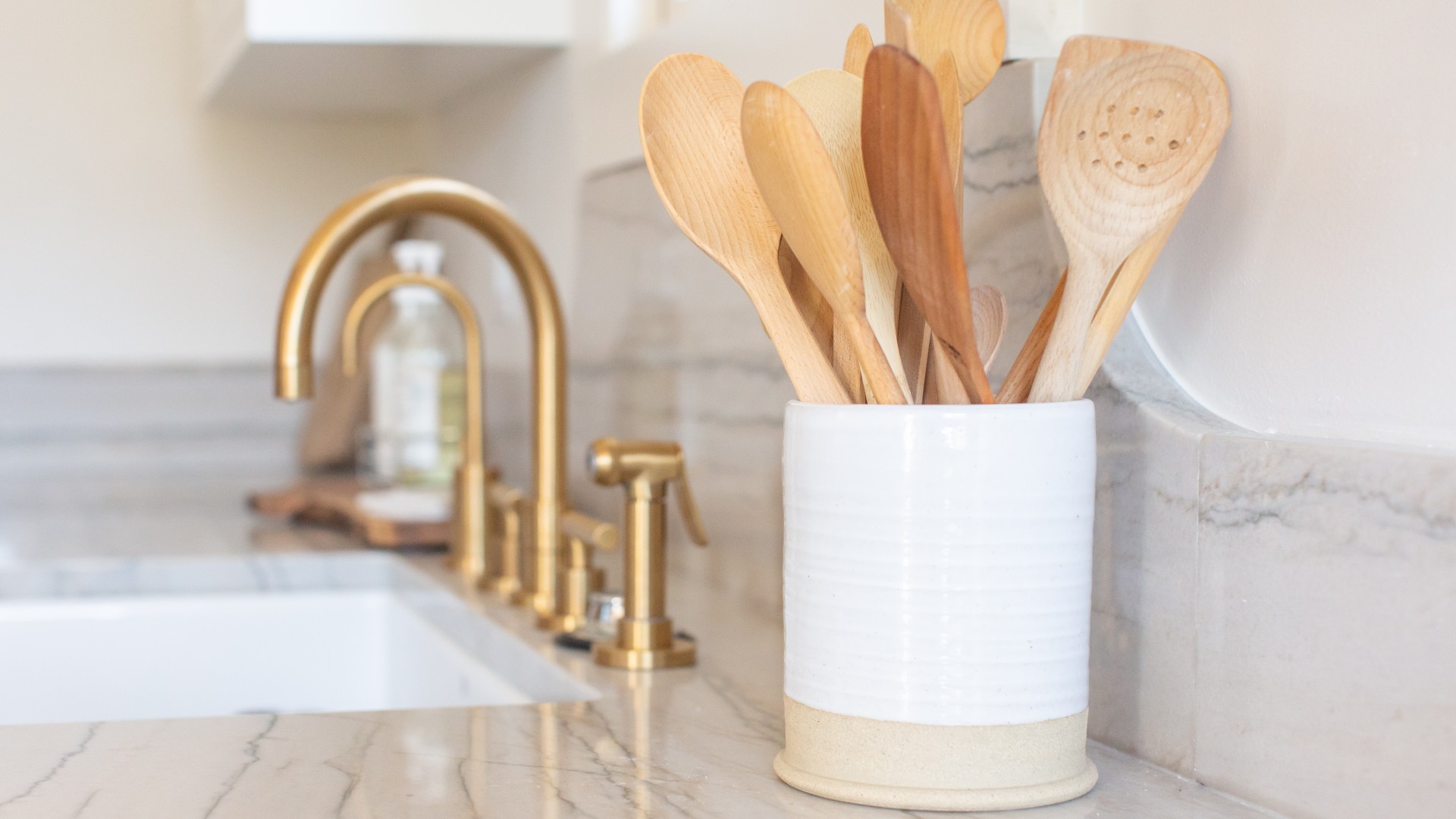
Perhaps one of the most common mistakes dishwasher owners make is putting items inside the appliance that aren’t best cleaned in this way.
In fact, certain items will likely be damaged if they’re put through a dishwasher cycle - if not immediately, then certainly over time.
Angela explained, "There are several items that you cannot put in a dishwasher. Some of these are crystal glasses and wooden bowls, and some types of plastics are also not dishwasher safe and can be damaged."
You’ll want to avoid putting wooden items in there for example, as the excessive heat and moisture will eventually cause the wood to split and warp. This is the reason you should always clean wooden spoons by hand.
10. Not loading to full capacity
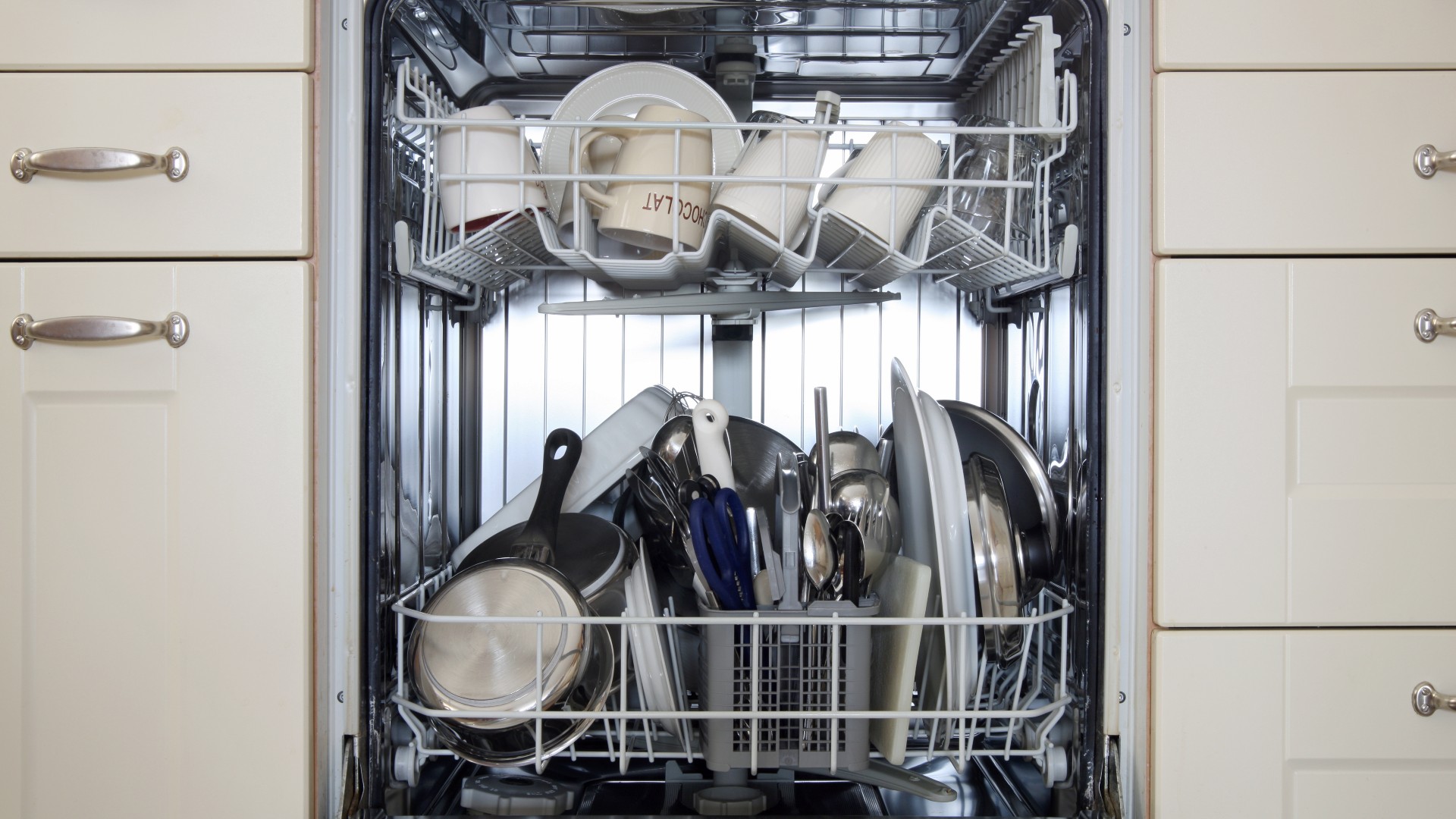
Though you definitely don’t want to overfill your dishwasher (the first of our dishwasher mistakes), running a half-empty load will also mean that you'll be wasting water and energy - which isn’t ideal for living sustainably.
"Make sure your dishwasher is full, but not overfilled, and well stacked," Michael advises. "You will get just as good of a wash with a full load as you will with a half-empty load; the only issue is you will waste more water and energy by not fully loading up the appliance."
11. Not running your hot water beforehand
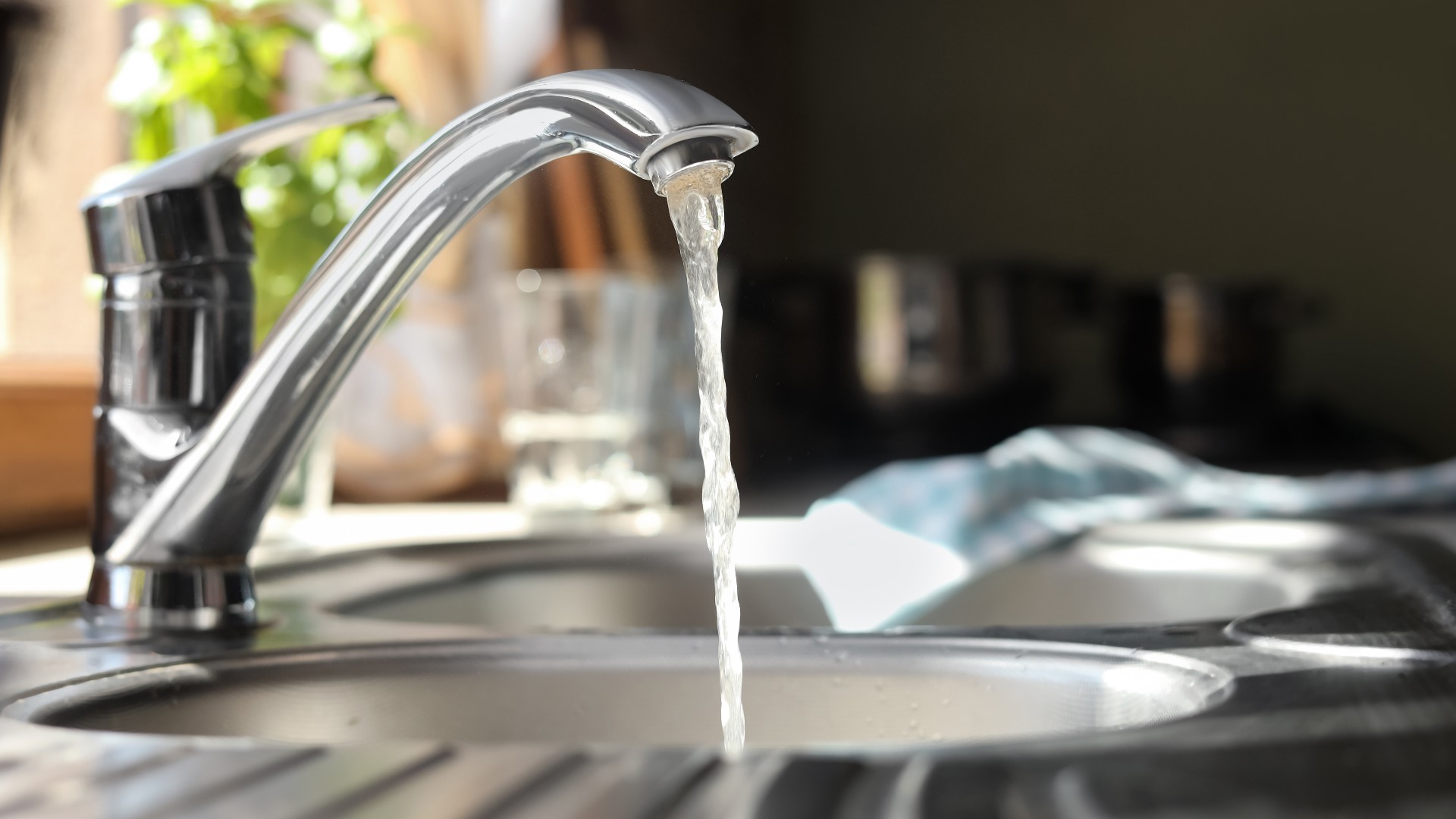
It might sound unusual, but according to Angela, you may be missing a trick if you’re not running your hot water tap before using your dishwasher.
"Running hot water for a few seconds before starting the dishwasher can make sure that the water entering the dishwasher is already hot, which can improve cleaning performance. Cold water can leave behind some food and soap residue," she explains.
"To achieve this, you can simply turn on your hot water at the sink and leave it for a few minutes."
12. Overusing the ‘eco’ mode
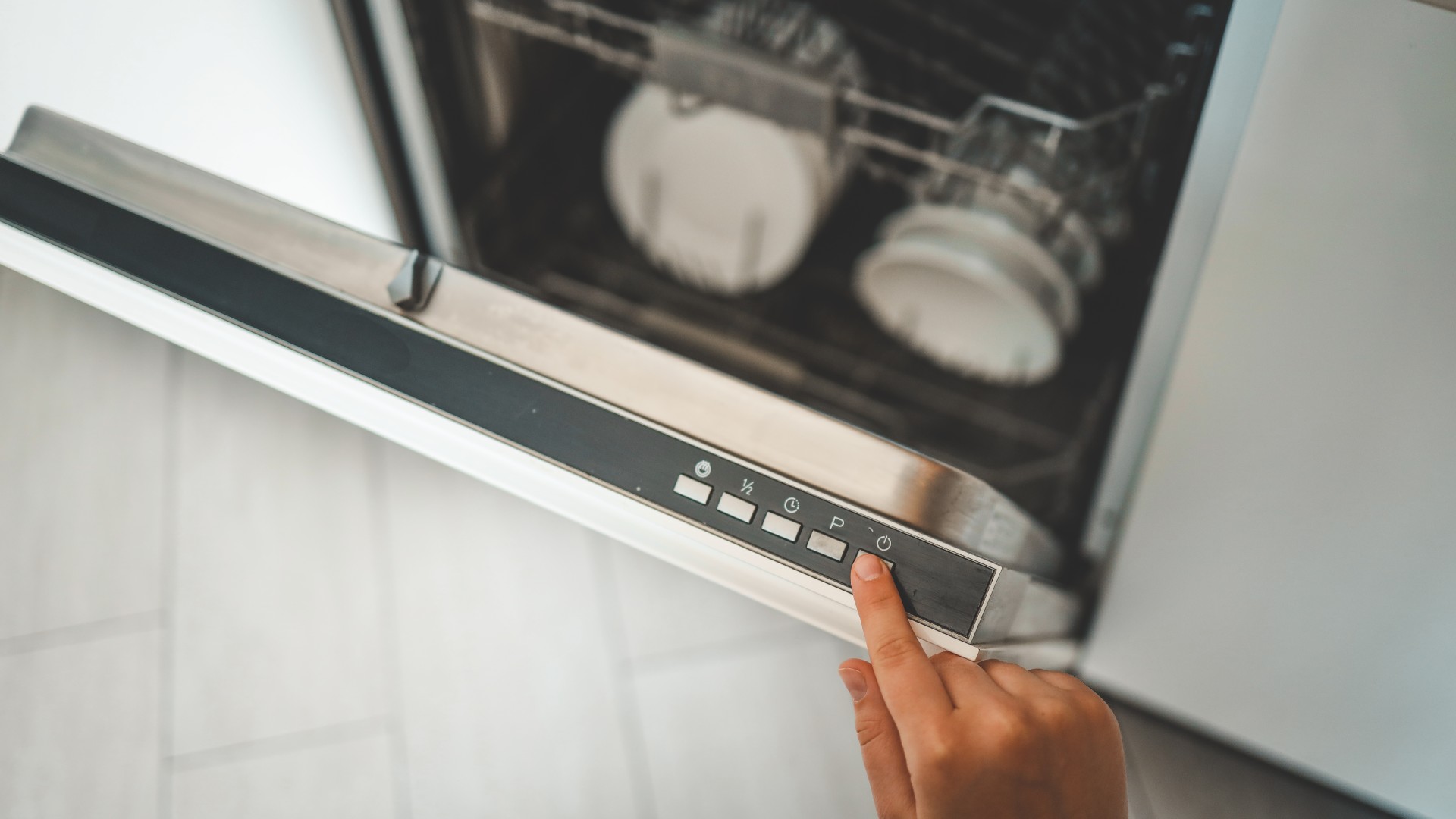
Running our dishwasher on 'eco' mode, or 'energy saver' mode, is only be a good thing, right? While these cycles may conserve energy by running at lower temperatures, using *only* these cycles could be a mistake that may prove detrimental over time.
"I've come across instances where homeowners used only the eco or energy saver mode on their dishwashers, thinking it would save money and be more environmentally friendly," says Jason.
"However, this can lead to problems, as the water in these modes might not get hot enough to completely dissolve all the soap. Consequently, soap can build up over time, causing issues like leaks and damage to the dishwasher."
To avoid this, he advises running whatever your high temperature modes might be from time to time, in order to properly sanitize the dishwasher and to ensure you melt away any soap build-up.
13. Placing handles in the way of the spray arm

Finally, when using your dishwasher, it’s crucial to consider the movement of the spray arm (usually at the base of the dishwasher), in order to ensure proper cleaning. The key is to avoid any obstructions.
According to Christopher, some of us make the mistake of allowing handles on pots or pans to get in the way of this fixture, which prevents it from rotating properly and cleaning dishes to the standard we expect. "It never hurts to test it by giving it a quick spin to see if it rotates freely, once all of your pots and pans are in," he suggests.
What are the three most important rules when using a dishwasher?
In summary of the above, the three most important things to bear in mind when using your dishwasher are:
- to load it correctly, to ensure an even clean without damaging your items
- to be careful with what you put in it (from detergents, to your actual kitchen items)
- and, to clean your machine frequently and thoroughly, in order to ensure it runs as efficiently as possible.
While the first two ‘rules’ are important to avoid damaging your plates, bowls, cups and cutlery, the third rule – cleaning your dishwasher – and staying away from cleaning solutions that aren’t designed for dishwashers, is there to make sure your appliance lasts you for as long as possible.
Christopher explained, "Not cleaning it regularly can lead to damage to your dishwasher. In the end, you'll have to pay for expensive repairs or even need to replace the appliance sooner than expected."
Is there anything you shouldn't put in a dishwasher?
As mentioned, one of the biggest dishwasher mistakes (and one of the biggest air fryer mistakes) you can make is assuming anything can go inside the appliance. Unfortunately, there are plenty of things you shouldn't put in a dishwasher, including wooden utensils/bowls/plates and delicate items such as wine glasses and crystal glasses, as mentioned, given the risk of damaging them.
But these aren’t the only items that aren’t right for dishwasher cleaning. In fact, there are a few things that could be damaged by running them through a cycle. These include:
- Knives: Yes, really! Knives can become less effective if exposed to the high heat of your dishwasher, as it can cause them to blunt slightly.
- Some plastics: “Plastics that are not labeled as "dishwasher safe" can easily melt or warp in the high temperatures of the dishwasher,” Angela explained. So before adding them in, be sure to check whether they have the dishwasher-safe mark on them.
- Cast iron cookware and non-stick pans: In both cases, the extreme heat and intensive washing cycle of your dishwasher, as well as the dishwasher detergent, can strip off the coating of cast iron pots or non-stick pans, making them less effective. "It is best to clean these by hand, and make sure to dry them completely before storing them," Angela said.
- Copper or brass kitchenware: Given the delicate material, high water temperature, and the type of soap used, copper and brass are big dishwasher no-nos, Angela told us. "Again, it's best to wash these items by hand with mild soap and water." Always seek alternative ways to clean brass to avoid using the appliance.
What can ruin a dishwasher?
Though it's a pretty hardy appliance, certain behaviors can degrade the effectiveness of your dishwasher over time, meaning it simply won't last as long.
One of the quickest ways to ruin a dishwasher is to neglect its maintenance. Dishwashers, for example, need to be regularly topped up with rinse aid and dishwasher salt, to lessen the amount of water on your items, and to protect against a potential limescale build-up. Cleaning with vinegar is a great way to combat the latter.
But one of the lesser-known ways of accidentally ruining a dishwasher is actually not running it often enough. According to Angela, leaving the appliance sitting dormant could have some serious negative effects. "Running your dishwasher too infrequently can lead to a buildup of food particles and bacteria, making it challenging to get your dishes properly clean, and leading to unpleasant odors."
Similarly, never cleaning your dishwasher will also, eventually, ruin its performance, and likely also leave you with some unpleasant smells from soap build-up and trapped food.
Amy Hunt is an experienced digital journalist specialising in homes, interiors and hobbies. She began her career working as the features assistant at woman&home magazine, before moving over to the digital side of the brand where she eventually became the Lifestyle Editor up until January 2022. Amy won the Digital Journalist of the Year award at the AOP Awards in 2019 for her work on womanandhome.com.

